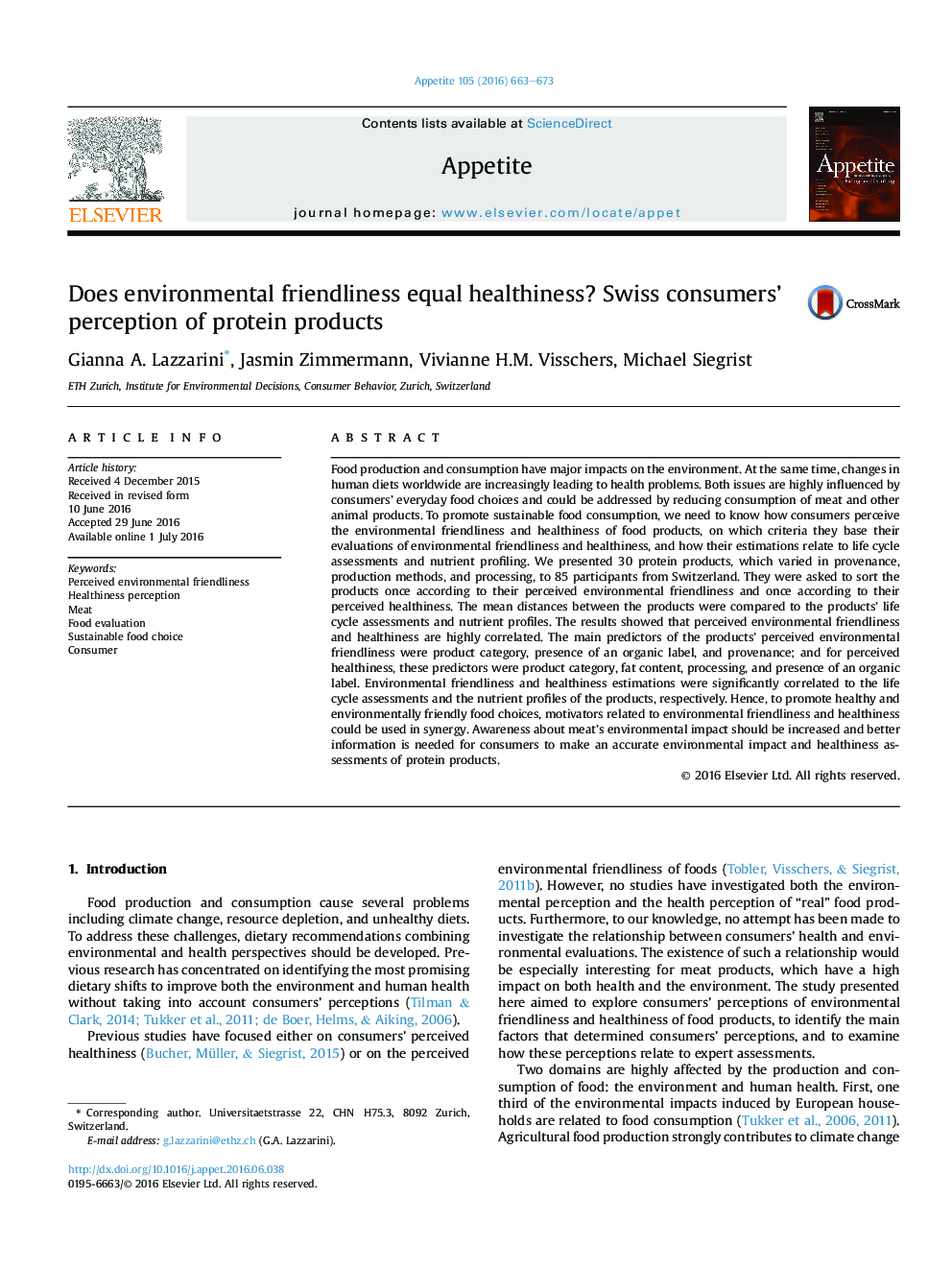| Article ID | Journal | Published Year | Pages | File Type |
|---|---|---|---|---|
| 7307328 | Appetite | 2016 | 11 Pages |
Abstract
Food production and consumption have major impacts on the environment. At the same time, changes in human diets worldwide are increasingly leading to health problems. Both issues are highly influenced by consumers' everyday food choices and could be addressed by reducing consumption of meat and other animal products. To promote sustainable food consumption, we need to know how consumers perceive the environmental friendliness and healthiness of food products, on which criteria they base their evaluations of environmental friendliness and healthiness, and how their estimations relate to life cycle assessments and nutrient profiling. We presented 30 protein products, which varied in provenance, production methods, and processing, to 85 participants from Switzerland. They were asked to sort the products once according to their perceived environmental friendliness and once according to their perceived healthiness. The mean distances between the products were compared to the products' life cycle assessments and nutrient profiles. The results showed that perceived environmental friendliness and healthiness are highly correlated. The main predictors of the products' perceived environmental friendliness were product category, presence of an organic label, and provenance; and for perceived healthiness, these predictors were product category, fat content, processing, and presence of an organic label. Environmental friendliness and healthiness estimations were significantly correlated to the life cycle assessments and the nutrient profiles of the products, respectively. Hence, to promote healthy and environmentally friendly food choices, motivators related to environmental friendliness and healthiness could be used in synergy. Awareness about meat's environmental impact should be increased and better information is needed for consumers to make an accurate environmental impact and healthiness assessments of protein products.
Keywords
Related Topics
Life Sciences
Agricultural and Biological Sciences
Food Science
Authors
Gianna A. Lazzarini, Jasmin Zimmermann, Vivianne H.M. Visschers, Michael Siegrist,
